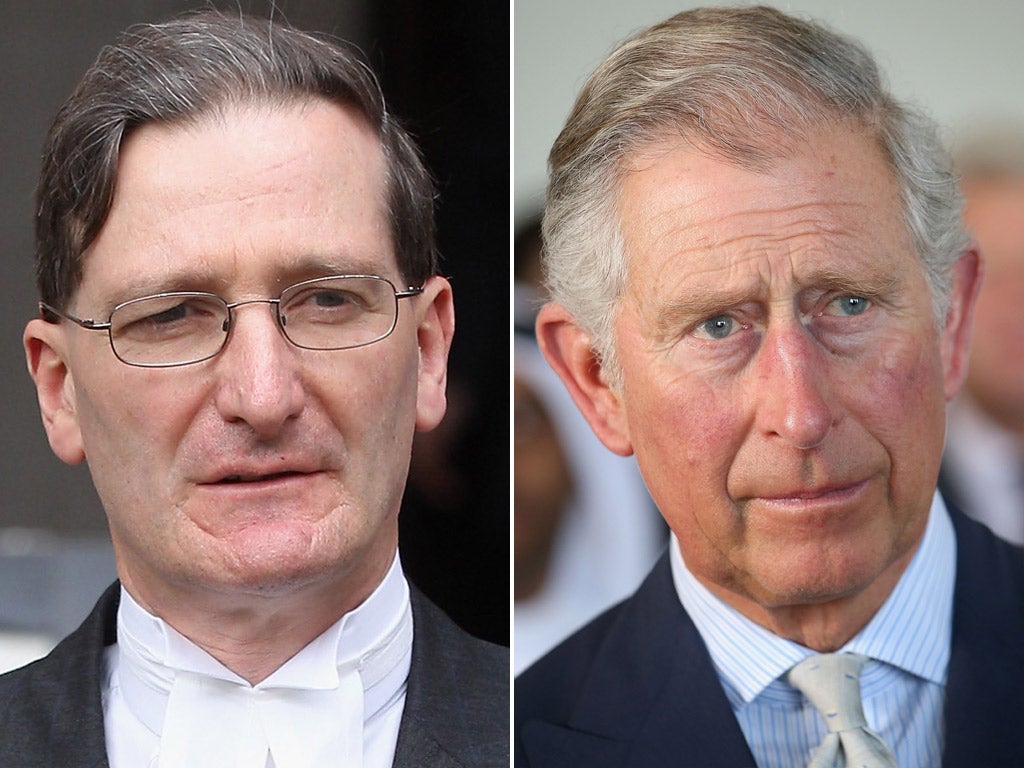Attorney General 'wrong to overrule judges who ordered Government to publish letters Prince Charles wrote to ministers'
Dominic Grieve said his decision was based on view that letters were sent as part of Prince’s 'preparation for becoming king'

The Attorney General Dominic Grieve got the law wrong when he overruled judges who ordered the government to publish letters Prince Charles wrote to ministers, a court heard today.
Mr Grieve used powers he believed were legally available to him to allow Whitehall departments to keep the correspondence secret. But judges hearing an application for a judicial review of Mr Grieve’s decision were told that he did not have the power to override the earlier decision of judges sitting in a Freedom of Information Tribunal.
Lawyers acting for a journalist who originally sought their publication said Mr Grieve, the government’s chief legal advisor, made an “error of law” because using the powers under Freedom of Information Act and Environmental Information Regulations in this case is incompatible with EU law.
Dinah Rose QC, representing Guardian journalist Rob Evans, argued that Mr Grieve’s error also led him wrongly to apply section 53 of the FOI Act “to the entirety of the information” which was the subject of the disclosure request when he had “no power to prevent all the correspondence falling into the public domain”.
Mr Grieve said his decision was based on his view the letters, penned by Charles during a seven-month period in 2004 and 2005, were sent as part of the Prince’s “preparation for becoming king”.
Making the letters public could potentially damage the principle of the heir to the throne being politically neutral, and so undermine his ability to fulfil his duties when king, he said.
In a written statement last year Mr Grieve said: “I consider that such correspondence enables the Prince of Wales better to understand the business of government; strengthens his relations with ministers; and enables him to make points which he would have a right - and indeed a duty - to make as monarch.
“If such correspondence is to take place at all, it must be under conditions of confidentiality. Without such confidentiality, both the Prince of Wales and ministers will feel seriously inhibited from exchanging views candidly and frankly, and this would damage the Prince of Wales' preparation for kingship.”
The case, being heard by Lord Chief Justice Lord Judge, Lord Justice Davis and Mr Justice Globe, was adjourned until tomorrow.
Join our commenting forum
Join thought-provoking conversations, follow other Independent readers and see their replies
Comments
Bookmark popover
Removed from bookmarks